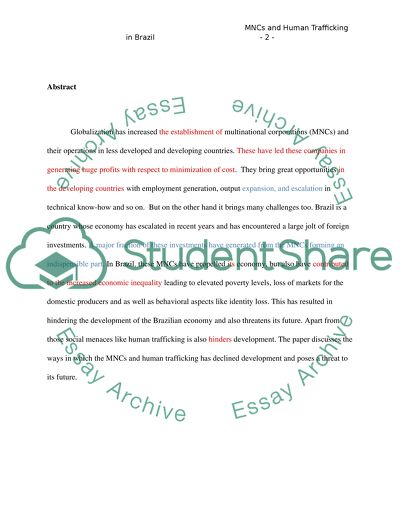Cite this document
(“How Multinational corporations and human trafficking hold Brazil back Research Paper”, n.d.)
How Multinational corporations and human trafficking hold Brazil back Research Paper. Retrieved from https://studentshare.org/history/1402221-how-multinational-corporations-and-human
How Multinational corporations and human trafficking hold Brazil back Research Paper. Retrieved from https://studentshare.org/history/1402221-how-multinational-corporations-and-human
(How Multinational Corporations and Human Trafficking Hold Brazil Back Research Paper)
How Multinational Corporations and Human Trafficking Hold Brazil Back Research Paper. https://studentshare.org/history/1402221-how-multinational-corporations-and-human.
How Multinational Corporations and Human Trafficking Hold Brazil Back Research Paper. https://studentshare.org/history/1402221-how-multinational-corporations-and-human.
“How Multinational Corporations and Human Trafficking Hold Brazil Back Research Paper”, n.d. https://studentshare.org/history/1402221-how-multinational-corporations-and-human.


